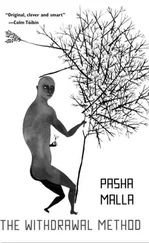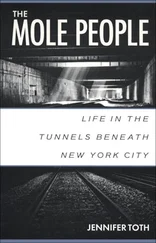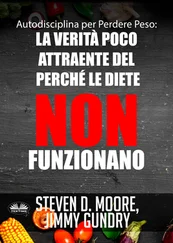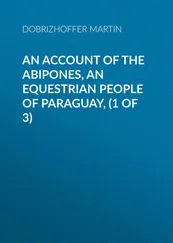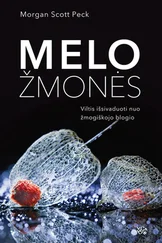Instead the towline came whipping out of the fog and thrashed in the Grand Saloon’s parkette. No chopper followed. Noodles opened his eyes. Blinked. Did not nod.
Walters?
Griggs, it’s done!
No. Nothing came over.
What?
The towline came loose. Ask Reed, when he returns from his joyride.
Wait — Griggs? No way, I saw it go over. What?
 HAT DO you mean he’s gone?
HAT DO you mean he’s gone?
He’s — Pearl began, but she felt emptied, incapable of words.
In his free hand Kellogg held a tray of flats, the cardboard sagged and dripped grease. He handed this to Elsie-Anne. Around them the midway blared and jingled. What happened, Pearly? Where’s Gip?
I got on the Thunder Wheel and he was beside me and —
And?
I look away for a moment, and then I look back, and we were moving, and Gip. . I started yelling for them to stop the ride but it just kept going up and up.
You checked lost and found?
No. We should.
And the bathrooms. Or some other ride? Or — whoops, Annie!
The flats slid from the cardboard tray and landed in a soggy heap on the sawdusted path. I bought dinner, said Kellogg, pointing. I thought maybe Gip could use something to eat.
A fly landed on the flats. Then another. And another.
No problem, Annie, said Kellogg. We can get more. But first —
Where’s Gip? said Elsie-Anne. Mustard streaked her dress.
Kellogg wiped his hands on his pants, left greasy streaks, lifted his daughter into his arms. Mummy just lost track of him, Annie. We’ll go make an announcement. He can’t have left! Where would he go?
Pearl followed her husband, the midway clattered and brayed. They passed beneath the Kicking Horse’s loop-de-loop, a trainful of riders hurtled around it screaming and yanked away, a hawker brandishing two ungodly stuffed bears, eyes thyroidal and bulging, two kids about Gip’s age lapping candyapples with sugared frenzy.
Kellogg stopped a youngish couple walking arm in arm, opened his wallet, dug out Gip’s school photo, wagged it at them, they shook their heads. He moved to an elderly gentleman hobbling along with a fistful of balloons. About yay tall, Kellogg explained, red hat, healthy, um, girth? Raven’s co-star last night? The balloon man apologized, wished the Pooles luck.
Pearl watched this hazily. As the Wheel had first begun to turn she’d gazed out over the island with melancholy. She tried to locate the view of the carnival below as the echo of some memory, but couldn’t. There was the story of her poor date throwing up, but though she remembered the details enough to tell it, the actual memory didn’t exist. She couldn’t recall the boy’s face, let alone his name, what the weather had been, how she’d felt before or after. All that remained was the disgusting, dramatic climax. She’d been happy to entertain her family with this, but now she wanted everything else: who was the boy, what had that night meant to her as a teen?
It was then that Pearl realized the seat beside her was empty. The wheel kept climbing. Her stomach flipped. With panic rising into her throat, choking her, she scanned the fairgrounds. Maybe she’d find Gip flashing a cheeky grin and waving as the ride lifted her skyward: what an illustration, vanishing like that. But the crowd shuffled along, no one looked up, no one was anyone she knew — besides the ride’s ambivalent operator, face cupped in hands lighting a cigarette.
Her cries of, Stop the ride, stop the ride, were lost amid the roar of the midway and the honks and shrieks of looped calliope. A metal bar pinned Pearl into the Thundercloud, though even if she could escape it was too high to jump, especially on her bad knee — she imagined it popping off like a bottlecap.
The world shrunk away beneath her. At seventy feet it became impossible to pick out faces from the crowd. Another twenty feet up what filled the midway ceased to be people, more a hive teeming with bees. Past one hundred feet their movements resembled a sheet rumpling in a slight breeze. And another fifty feet higher Pearl passed into the clouds, and through the other side, and everything below disappeared.
The wheel stopped with a shudder. She was alone up here — again. (Though that flying episode must have been a dream, surely. .) This was real: the Thundercloud swayed and creaked. The night was speckled with stars. The moon was colourless and ghostly. She breathed the crisp, clean air. Dread drained from her body. Her shoulders loosened. Her whole body loosened, a tight icy coil within her loosened. Despite the sounds of the fair filtering muffled through the fog, Pearl felt beyond everything, giddy and light, yet serene. She wished, or longed, or pined, to never come down.
What would she return to? A scenario began to play out in her thoughts: if Gip had run away or been kidnapped — hoping of course he would turn up, eventually, safe and sound — she imagined a scene, some months later, returning home from work to Kellogg and the kids standing grimly at the end of the driveway with boxes and luggage. She would be deemed negligent and unfit. A judge would award him custody of the children. She pictured herself in the living room, emptied of everything but her reading chair, sitting there in the dark, deserted and mercifully alone. Just like this.
At this came relief — followed immediately by shame, but the initial response was undeniable. It was a terrible thing to wish for, to abandon your family, or have them abandon you. But she was tired, always tired, and tired of being tired. Conversely there was freedom: no medications, no slogging alongside Kellogg’s manically blazing happiness while inside her glinted something black and mean. Pearl imagined her family as a brick and her life a balloon, the brick squashing and squishing and contorting the balloon, the balloon curling up in little rubbery swells around the sides of the brick, always on the verge of popping.
Pearly! cried Kellogg. Come on!
He was lunging past the balloon man, Elsie-Anne in tow. Pearl caught up at Lost Property. The calliope died, the PA crackled to life, and the guy working the booth struck up a little handheld radio. While Kellogg whispered dictation, out rattled a monotone announcement: Gip Poole, your father is looking for you . . Please come to Lost Property . . Not that you’re property . . Gibbles, Dad’s here . . He loves you . . Champ . . Everything is going to be okay.

OLPERT STOOD across the roundabout from Bay Junction, hiding in the shadows from the couple waiting at the Ferryport. They were that headscarfed woman and her husband, a burly creature of beard and fleece, who lived on the Islet’s southernmost point in a home built from trash scavenged from the beach. They existed without electricity or running water, grew all their food in a solar-powered greenhouse, hosted gatherings at which visitors orbited a bonfire tapping homemade drums. One night Olpert had watched in secret from among the reeds, found the rhythm soporific, fallen asleep, woken up cold and hungry, the bongos still tocking.
This couple, toiling at land’s end with their compost bins and trellised veggies, were worrying: they seemed apocalyptic and crazed, harbingers of some social collapse to which no one else was yet privy. Even so Olpert usually braved a sidemouthed Hi when he bumped into them. But now he hung back, skulking within the shadows while the ferry came chugging into dock and the apron lowered. Only upon the foghorn warning, low and mournful and ghostly, did he race aboard, all the way to the bow.
Читать дальше
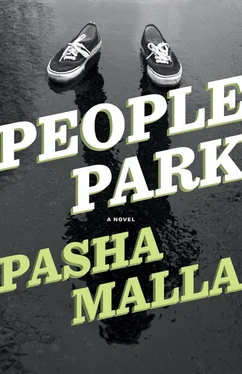
 HAT DO you mean he’s gone?
HAT DO you mean he’s gone?
